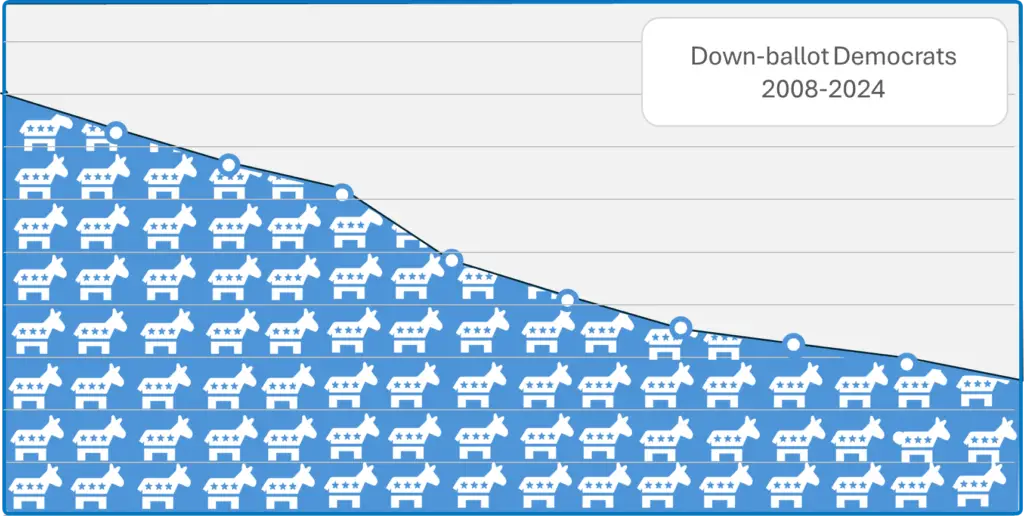
Trump’s 2016 victory was a shock to the psyche of every Democrat, no doubt. But there’s a sense among Democrats that we’re doing okay. That, aside from that one fluke election, we’re making progress on elections and governing. A decent swatch of our core issues has gained enormous support in a short time. Obamacare was teetering on oblivion for years but is now sacrosanct and has given rise to movement toward increasing access to Medicare, government-negotiated drug prices, and other ways to make health coverage more accessible and effective. Take gay marriage. In the span of less than a decade, we’ve gone from ‘Don’t Ask’ to fully supported and protected rights for anyone to marry as they choose. Since the Dobbs debacle, where states have put reproductive rights to any kind of public vote, it has cruised to victory, even in the reddest of states. All this is to say that it would seem that the American voting population at large should be a somewhat friendly space for a Democrat running for office.
Yet the success of these and other progressive issues belies the trend in our elections. In short, we’re losing them. Despite currently controlling the Senate and the Presidency, Democrats have lost an enormous amount of legislative control. Since 2008, we have lost 44 seats in Congress (-17%), over 1000 state legislative seats (-24%), and control of 18 legislatures (-31%).
Not all of these are actual candidates that lost an election. That’s because in nearly half of the over 29,000 partisan elections every cycle, Democrats failed to even have a single candidate on the ballot.
If you’re like most people and not consumed with state and local elections, all this might be rather surprising. It’s not uncommon for most of us to tune in to the Presidential contest every four years, get absolutely bombarded with politics to the point of exhaustion, then take comfort that we have 3 years before that chaos starts up again.
There are too many causes to even think there is but one answer. Certainly, there is a Republican messaging advantage that rests in some simplistic bundle of self, family, and faith. The Democratic/Progressive argument, rooted in progress, is, by definition, more unfamiliar, less stable, and hence, more challenging to deliver. The less meta and more operational answer is closer to how we approach our campaigns themselves. They are not effective. We spend billions on postal mail that no one reads. We have not figured out how to effectively tap into modern media. Our underfunded party committees don’t have the resources to do much of anything significant. And our campaigns are getting enormously more expensive.
With few people paying attention, an uphill climb to Election Day success, and the prospect of having to raise an ever-increasing amount of money, just to figure out how to run a decent campaign on your own, it’s no wonder we have lost over a quarter of our influence at the state level just since the fairly recent rise of social media.
ProgressiveLabs is a Social Benefit Organization, dedicated to helping down-ballot Progressive organizations run effective, optimized campaigns that win on Election Day.